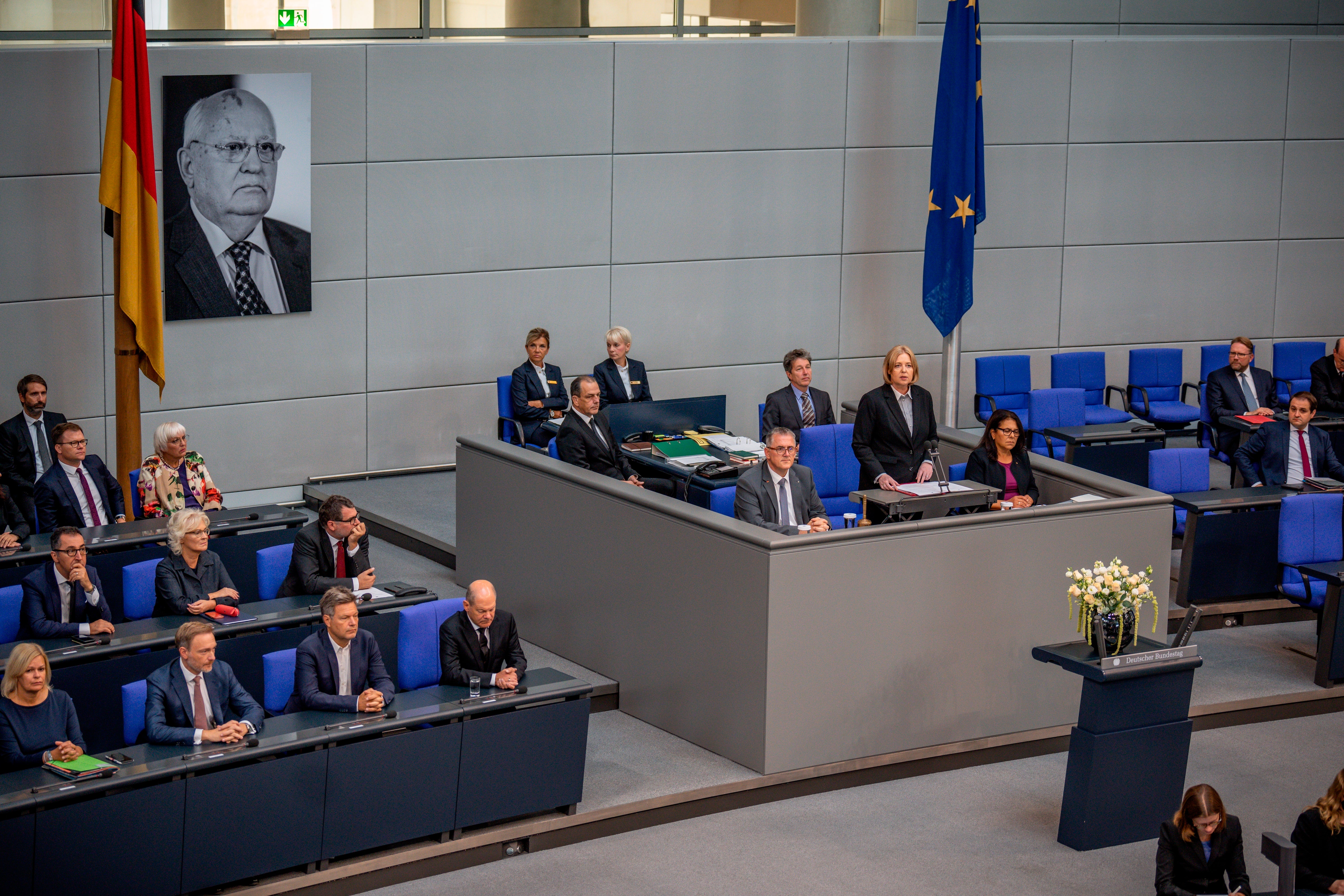German parliament honors Gorbachev, who enabled unification
Germany’s parliament has paid tribute to Mikhail Gorbachev by holding a minute of silence for the former Soviet leader who paved the way for German reunification 32 years ago

Your support helps us to tell the story
From reproductive rights to climate change to Big Tech, The Independent is on the ground when the story is developing. Whether it's investigating the financials of Elon Musk's pro-Trump PAC or producing our latest documentary, 'The A Word', which shines a light on the American women fighting for reproductive rights, we know how important it is to parse out the facts from the messaging.
At such a critical moment in US history, we need reporters on the ground. Your donation allows us to keep sending journalists to speak to both sides of the story.
The Independent is trusted by Americans across the entire political spectrum. And unlike many other quality news outlets, we choose not to lock Americans out of our reporting and analysis with paywalls. We believe quality journalism should be available to everyone, paid for by those who can afford it.
Your support makes all the difference.Germany's parliament paid tribute to Mikhail Gorbachev on Wednesday, holding a minute of silence for the former Soviet leader who paved the way for German reunification 32 years ago.
Flags at the parliament's Reichstag building in Berlin were lowered to half-staff as lawmakers opened the day's session, one of the first since Gorbachev's death last week, with the tribute.
“He made possible what for decades seemed impossible — ending the Cold War peacefully and overcoming the division of our country and our continent,” speaker Baerbel Bas told lawmakers. “We Germans have much to thank Mikhail Gorbachev for."
“He changed the history of our country and the lives of millions of people,” Bas said. “His courage and his stance were decisive in the recovery of our unity.”
Gorbachev's drive for reform and increasing openness set the scene for the peaceful collapse of communism — and one of its key moments, the fall in November 1989 of the Berlin Wall. Less than a year later, Germany was reunited as member of NATO and with a promise that Soviet troops would be withdrawn.
Gorbachev remained enduringly popular in Germany, a contrast with how he was viewed in Russia. As they remembered Gorbachev last week, German leaders pointed to the contrast with today's relations with Russia, which are icy following Moscow's invasion of Ukraine.
Germans for too long “overlooked, or perhaps didn't want to believe, that Russia under (President Vladimir) Putin had long since and radically turned away from Gorbachev's aims," Bas said.
“Today, a deep rift gapes between Russia and Europe where, according to Gorbachev's vision, a common European house was supposed to arise with Russia and with a common security architecture,” she added.
“It is Russia that has broken with this spirit under Putin, and that is a tragic mistake."